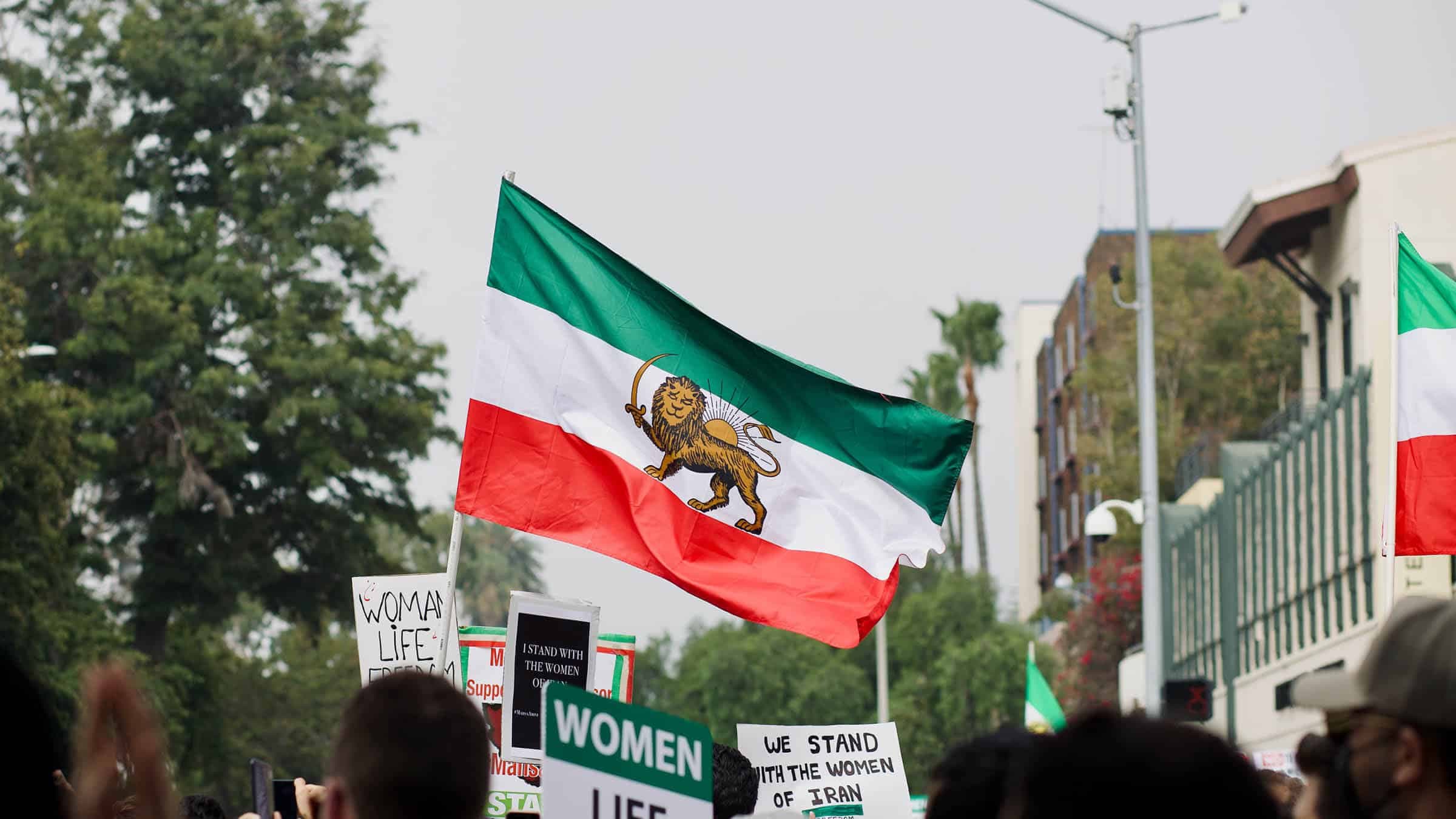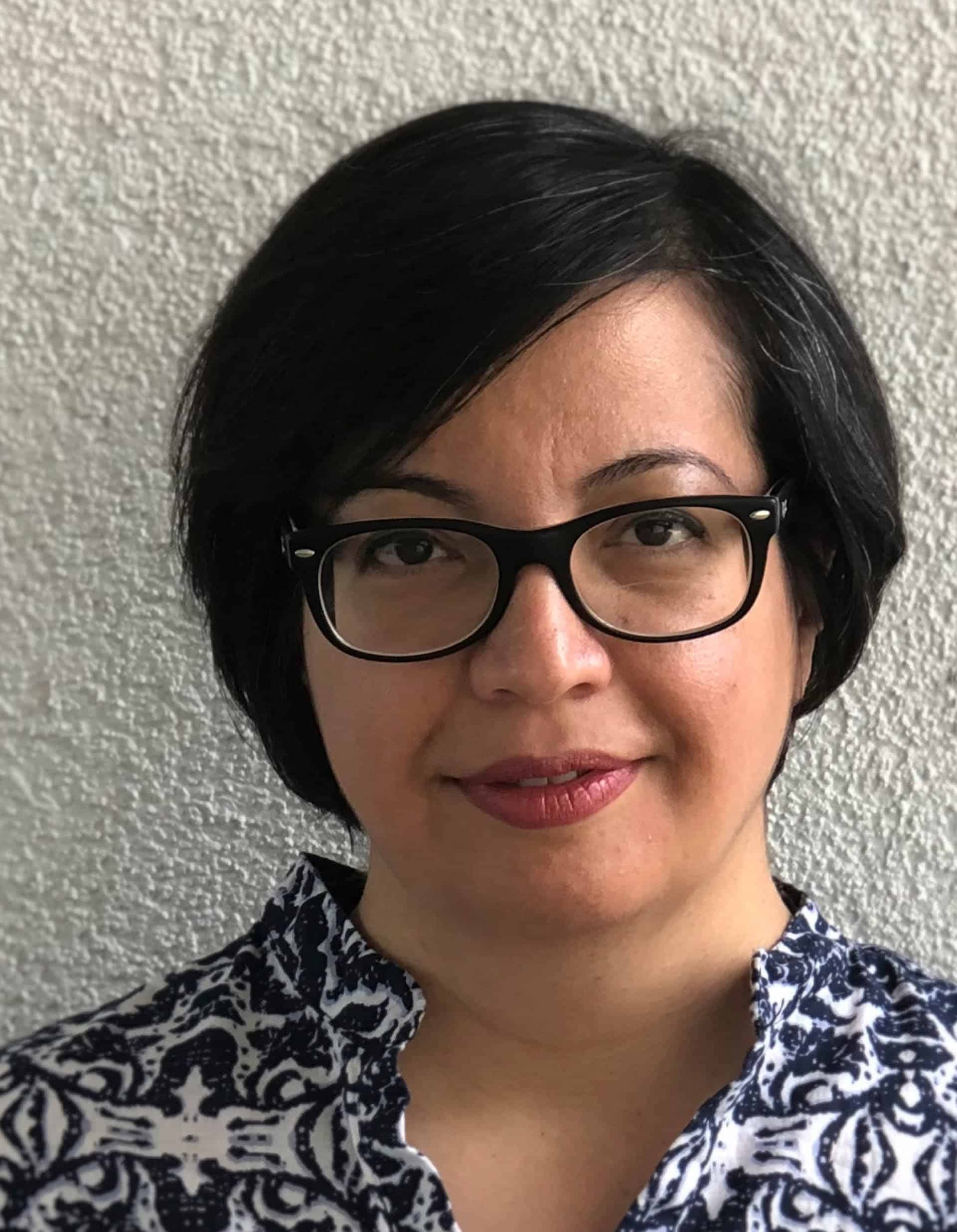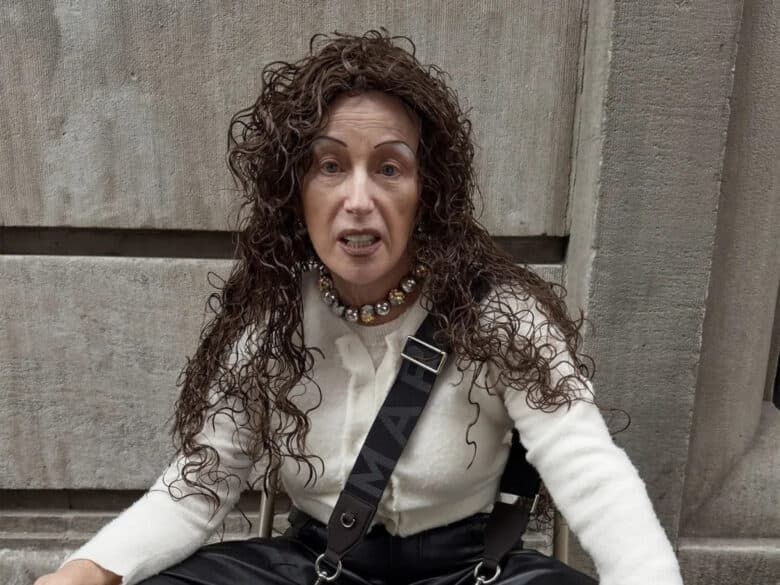The Iranian activists fighting for women’s liberation: Shadi Sadr

As Shadi Sadr, the prominent Iranian lawyer, journalist and human rights advocate, speaks about her childhood in Tehran, one memory comes to the forefront – when she was nine her bike was taken away from her. It wasn’t because of any bad behaviour on her part, but rather enacted by her mother in order to protect her; as a young Iranian girl, it had become dangerous for her to travel freely. “I cried for so many nights,” Sadr recalls. “No one could explain it to me because it was so unfair. I felt betrayed by my mother, who didn’t believe in those ‘rules’ herself. Why could my brother and the other boys in my neighbourhood still go out?”
It’s an injustice that Sadr has carried with her and is symbolic of a larger shift she witnessed during her childhood. She was five when the Iranian revolution took place – an event that sought to depose the secular monarchy, resulting in an authoritarian theocracy led by the country’s first religious supreme leader, Ayatollah Khomeini. Women and girls were the first targets, and within the first years of his rule, the hijab was made compulsory, even for those of primary school age. “The hijab affected other aspects of our life greatly,” Sadr says. “It meant that, as girls, we already started to have the experience of being second class citizens in our society, especially as disobeying carried a range of punishments.”
The restrictions imposed on women were sweeping. They included men being able to prevent their wives and daughters from working and going out on the streets, as well as the reversal of the Family Protection Law, which meant that women could now be divorced just by being notified by mail and lose custody of their children. Sadr, however, was able to go on to study law at the University of Tehran – a choice she made in order to better understand the patriarchal system and how it could be circumvented.

In the years since, the number of accolades she has received are extensive. In 2002, Sadr set up the Women in Iran website to raise the profile of female activists, and four years later cofounded the Stop Stoning Forever campaign, after the method of execution came into use in 1979, with women being disproportionately sentenced. She also founded Raahi Legal Centre, an NGO that provided advice to marginalised women. Here, she successfully defended in court a number of female journalists and activists who had been condemned to death, before finding herself a victim of the same regime.
In 2007, she was arrested after attending a peaceful protest and was held for 15 days in Tehran’s Evin Prison, which is notorious for human rights abuses and mistreatment of prisoners; during this time the authorities shut down Raahi Legal Centre. Then, in 2009, she was assaulted by plainclothes militia for participating in a demonstration following the presidential election and was detained for 11 days. “They physically tortured other people in front of me to psychologically abuse me, but they didn’t touch me as I was well known with incertain circles,” Sadr tells me, adding that current hallmarks of the country’s regime, including arbitrary confinement, physical interrogations, intimidation and pressurised confessions, were already entrenched practices.
Following her second detention, the activist was forced to seek exile in Europe. Overseas, she was convicted in absentia in Tehran for “acting against national security and harming public order” and was sentenced to six years in prison with 74 lashes.
It is through the lens of her personal history and the 1979 revolution that Sadr views the events going on in the country now. “It’s been like living on a rollercoaster,” she sighs, speaking from her home in London. “There are days when our hope is stronger, but it’s not easy. The most difficult part of our lives nowadays is finding the best way to contribute to this revolution and amplify the voices in Iran.”
As we speak, the NGO she cofounded in 2010, Justice for Iran (JFI), has been working tirelessly since the insurgence to hold the perpetrators of serious human rights violations accountable. Taking aim at country officials for crimes against humanity, enforced disappearances, war crimes, genocide and torture, the organisation aims to protect the most marginalised groups in the country, including women, ethnic and religious minorities, political dissidents and members of the LGBTQIA+ community.
Following the death of Mahsa Amini last September, JFI issued a public call-out to the people of Iran, asking them to send information about specific instances of brutality. They received more than a thousand communications from that one request, and have continued to record, categorise and verify them. “It shows us one very important thing – that the people in Iran are so eager to receive justice and they don’t want to use violence, even though they themselves have been subjected to unspeakable crimes,” Sadr states. “Many people have told us that they want this information recorded, even if they’re no longer alive or if the revolution doesn’t succeed. They want these people to end up in a court outside Iran, on an international level.”
This is part of a bigger mission of Sadr’s – to ensure that the international community is galvanised to enact greater measures against the Iranian government. “More institutions in different countries need to be involved, they need to implement sanctions and have a much tougher position. Leaders of the world can’t negotiate with a regime that kills innocent people.”
Having seen and experienced so much personally, Sadr shows a commitment to the cause that is moving. “It’s difficult,” she concedes, “and sometimes you think that you’ve sacrificed so much, but compared to those who have lost their loved ones and their children, it’s nothing. I have a responsibility to do whatever I can to support the women and girls of Iran. This is a cause that made me leave my beloved country – I’m not in the place I should be, and this creates such feeling against the regime. It’s a great motivation of mine to continue the battle to the very end.”
Taken from HUNGER Issue 27: Call to Action. Available to buy here.

